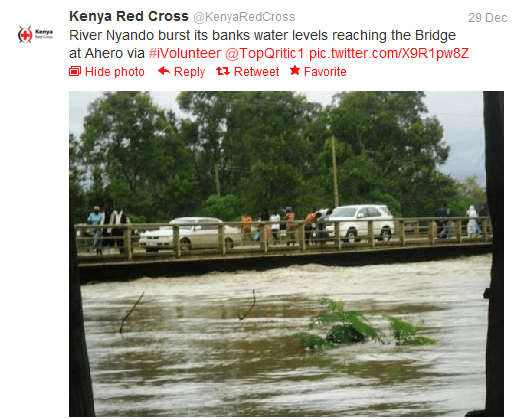Social media isn’t new anymore, but the ways in which it can be used both by the public and officials during emergencies are evolving quickly.
In 2012, our own Canadian Red Cross survey about social media use in disasters demonstrated that it’s a space emergency officials cannot afford to ignore. The majority of Canadians expect it. Hurricane Sandy, meanwhile, provided us with examples of social media use at its best at the height of one of the worst storms in recent memory, from the American Red Cross' Digital Operations Center, crowd-sourcing initiatives, excellent community management and debunking of rumours, to the powerful use of video by elected officials to deliver messages to the public.
The use of social media in emergencies isn’t strictly a North American phenomenon. While it may not be as well documented, social media is also impacting how Red Cross societies and even governments are responding to disasters in other parts of the world.
I’ve never stepped foot in Kenya, yet I get daily up-to-the-minute information about traffic disruptions, fires, floods and explosions in Nairobi and other parts of the country. I follow @KenyaRedCross on Twitter, an account that shares a steady stream of information to its 50,000 followers. The Kenya Red Cross relies on "ivolunteers" and crowd-sourcing to obtain and relay updates about incidents in real-time, resulting in lives being saved and recognition for the Kenya Red Cross.

The Filipino government recently made smart use of Twitter hashtags as described in this blog post ahead of Typhoon Bopha’s landfall. They encouraged the use of specific and distinct hashtags for disaster relief and rescue and for general typhoon updates, knowing a single hashtag would prove difficult to monitor. It’s a interesting strategy, if adopted broadly. One that could even save lives.
In all of these examples, social media helps break down barriers and promotes sharing of information between emergency officials and the public. We look forward to seeing how this trend will evolve in 2013. Let us know what you think.